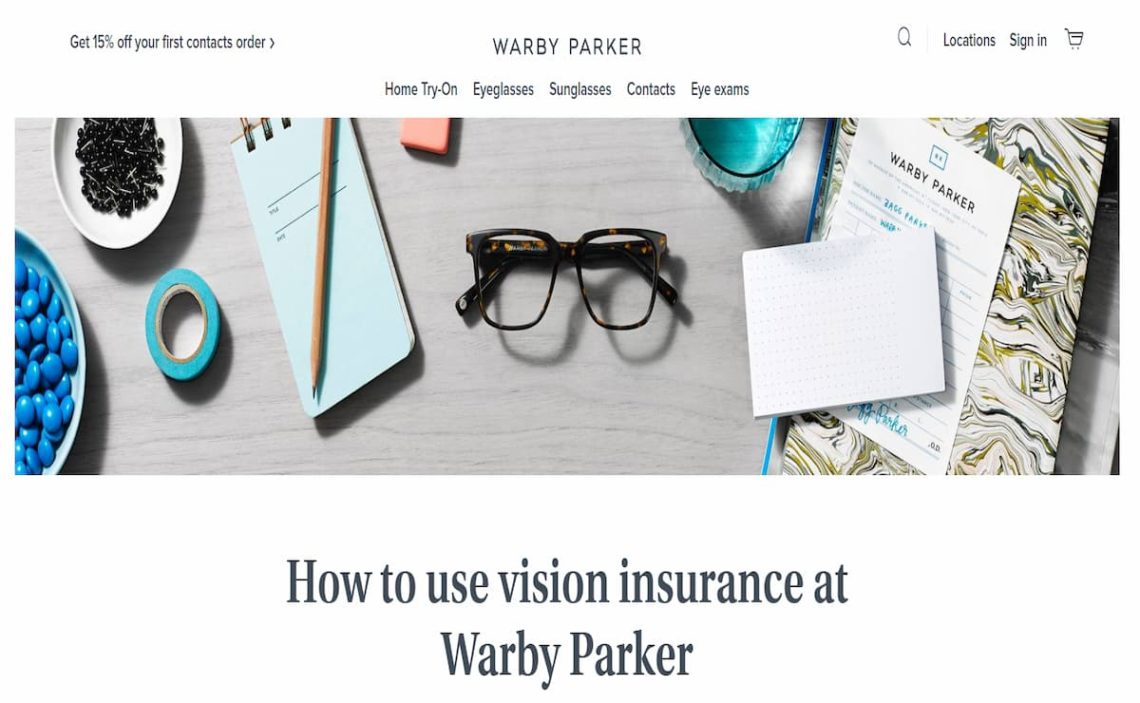Warby Parker is a company with multiple locations throughout the country. Its objective is the commercialization of eyeglasses for vision. It has a wide range of options and services. In addition, it is also compatible with insurance companies to obtain reimbursements through related policies.
Warby Parker’s commercial proposal is wide and provides from selling lenses of all kinds to other services such as eye exams. It is one of the leading companies in marketing eyeglasses and contact lenses.
The company’s products are also compatible with medical prescriptions or reimbursements from insurance companies.
Does Warby Parker accept insurance?
Yes, this company has become a network provider for different underwriting models. Highlights:
- Medicare Advantage vision underwriting plans through UnitedHealthcare.
- Plans through Davis Vision
- FEP with BlueCross BlueShield.
For all other providers, the company will be considered an out-of-network provider. This means it is possible to request reimbursement for the purchase when you are entitled to it out-of-network but within your vision insurance plan.
It is also compatible with flexible spending accounts (FSAs) or health savings accounts (HSAs). In this case, it would be possible to use both for the purchase of both conventional prescription eyeglasses and prescription sunglasses. However, the accounts must be linked to a relevant credit card.
Warby parker insurance coverage
Vision insurance covers different services and product models. The most prominent would be the following:
- Prescription eyeglasses: starting at $95, including prescribed lenses plus free shipping and returns.
- Prescription sunglasses: starting at $195, including prescription lenses plus free shipping and returns.
- Contact lenses: including all lenses marketed by the brand. It is important to note that insurance reimbursements cannot be chosen when applied over discounts or promotions.
- Eye exams: The company offers vision testing services in a portion of its stores through quick and easy appointment scheduling.
Does all insurance have coverage for eyeglasses?
The vast majority of insurance companies offer coverage for prescription lenses. However, it should be noted that in some cases, there are exclusions, such as for certain prescription sunglasses.
Also, it is impossible to use insurance reimbursements to purchase lenses if you do not have a prescription.
Finally, some eyeglasses are not usually included in insurance coverage. An example of this is blue light filtering glasses. Even with a prescription, these glasses are generally not eligible for reimbursement.
Another aspect you should always check with your vision insurance is the amount of coverage. Most insurances offer only a fixed annual allowance for glasses or contact lenses. If you need more than one pair of glasses for a year, your insurance will probably not reimburse you.
How to claim insurance when buying eyeglasses?
To be able to access the insurance claim when buying your glasses, the first thing you need is to have a policy that covers the reimbursement. You must not forget that the insurance company will probably not offer you this reimbursement if you do not have a medical prescription.
Also, you must remember that if you have a medical prescription for the glasses but do not have insurance, you will not be able to benefit from the corresponding discount.
Warby Parker will verify the insurance company and your eligibility if you meet the above requirements. Generally, you will be asked for information depending on whether you are in-network.
For example, in the case of UnitedHealthcare or Vision Davis, you can apply online by providing your member ID and personal information such as first name, last name, and date of birth. If you make a claim in the store or by telephone, you must add information such as your zip code and other personal information.
It is also important to remember that if your FSA or HSA is affiliated with a major credit card, you may be able to access items and services such as prescription eyeglasses, prescription sunglasses, contact lenses, and eye exams.
It is also possible to be covered for the cost of in-store prescription verification services or even virtual vision testing.


